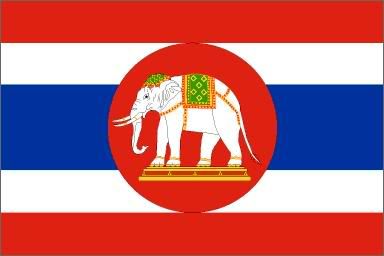ASARNHA PUJA AND BUDDHIST LENT
There are two important Buddhist holidays on Sunday and Monday of this coming week -- Asarnha Puja Day (วันอาสาฬหบูชา) marks the Buddha's first sermon which he gave on the full moon day of the eighth lunar month; and Wan Khao Phansa (วันเข้าพรรษา), the beginning of the three-month Rains Retreat during which time monks aren't allowed to leave their temples or to defrock.
This year, Asarnha Puja falls on 29 July. The Lord Buddha's first sermon -- which the day honors -- is called Dhammacakkappavattana Sutta. During this discourse, the Buddha talked about "The Middle Way", which means that we should try hard enough but not too hard. If we wish to be successful in Spiritual life, we should avoid the two extremes:
- Trying too hard, such as not eating or not sleeping enough.
- Not trying hard enough, such as eating and sleeping too much.
He also spoke about the Noble Eightfold Path. This path tells us:
- To live in a way that does not harm ourselves or others.
- To help ourselves and others.
- To purify the mind.
He advised people to speak and act and earn their living in good ways. He also advised them to practice meditation to purify their minds. Then they can get deep wisdom.
Being the day before the beginning of Buddhist Lent which coincides with the rainy season Asarnha Puja is also the day when the laity presents Rains Cloths to the monks. A Rains Cloth is used while taking a bath in the rain or in a stream during the rainy season. It was introduced in the Buddha's time by a rich lady called Visakha, who was then the Buddha's main female supporter and benefactor
Known as Khao Phansa, the Buddhist Lent is a time devoted to study and meditation. Buddhist monks remain within the temple grounds and do not venture out for a period of three months starting from the first day of the waning moon of the eighth lunar month (30 July in 2007) to the fifteenth day of the waxing moon of the eleventh lunar month (in October). Traditionally, this is done to prevent monks from trampling upon rice paddies when they venture out to receive offerings from the villagers.
During the donation ceremony robes, lotus flowers, food, and other useful items are given in addition to the candles. After receiving the donations, the abbot blesses the crowd by sprinkling lustral water (nam mon, -- น้ำมนต์) on the faithful. Lustral water is water that has been infused with magical powers or has received a blessing from monks. Thais believe that those who drink lustral water or have it sprinkled on their head, the most sacred part of the body, will be blessed.
Some Buddhist followers consider the beginning of Buddhist Lent as a time for making resolution such as refraining from smoking or observing The Five Precepts (Panjasila - ศีลห้า) throughout the three-month Rains Retreat.
On Wan Khao Phansa, Buddhists will go to the local wat, offer food and others necessities to the monks, and attend a three-round candle procession around the Buddhist temple. They behave according to the rules of Buddhism, praying and meditating.
For Buddhism and its followers the Buddhist Lent has the following Important characteristics:
- Buddhist monks who have been travelling from place to place have to take up shelter in a particular place, according to Lord Buddha's discipline.
- Buddhist monks who stay at a particular place for a length of time shall teach the young boys who wish to be ordained in order to study the Buddhist Doctrine, and preach to the lay followers.
- During the Buddhist Lent lay follows refrain from bad actions in particular drinking alcohol, taking drugs or leading an inappropriate life.
- During the Buddhist Lent, the laymen acquire merit, observe five or eight precepts, listen to sermons and sit in meditation in temples.
If, during the three months of Buddhist Lent, a monk travels beyond the boundaries of his monastery and is prevented from returning before the first moment of sunrise the next morning, he breaks his vow and will not be able to count that Rainy Season in his seniority. A monk's seniority is counted by the number of completed rainy seasons. Furthermore, he will automatically forfeit the strong beneficial karma of the Pavarana ceremony at the end of the Rainy Season.
Our school has "Buddhist Lent Week" activities throughout the past week, including class-level field trips to various local temples (my P.3 class visited Wat Thep Wanaram in Tambon Sri Sunthon on Tuesday). Monday and Tuesday are school holidays so we have a four-day weekend. My wife, son, and I are planning to take the ferry over to Koh Yao Noi and spend a couple of nights in a bungalow on that small island.

ไม่มีความคิดเห็น:
แสดงความคิดเห็น